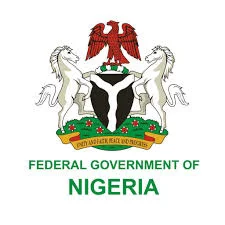The Federal Government has introduced a new guideline setting 12 years as the minimum age for admission into Junior Secondary School 1 (JSS1), following the completion of six years of primary education.
The directive is contained in a newly released policy document on Non-State Schools, which was launched last week by the Federal Ministry of Education.
Non-state schools—also known as private, independent, or non-government schools—are those not operated by government authorities and are typically funded through tuition, donations, and support from individuals, communities, religious groups, businesses, and charitable foundations.
---
The policy highlights the increasing significance of these schools in delivering education across Nigeria, despite notable differences in standards and quality among them.
Providing a breakdown of age-based progression in early education, the Ministry stated: "Nursery education shall be of three years’ duration. Children shall be admitted into Nursery One when they attain the age of three years. Nursery Two on attaining the age of four years, and one year of compulsory pre-primary education (Kindergarten) on attaining the age of five years, in accordance with the specification of Section 2(17) of the NPE, 2013 Edition."
On the primary and junior secondary school transition, the policy adds: "Basic education shall be of nine years’ duration. There shall be a six-year primary and a three-year Junior Secondary School (JSS). Children shall be admitted into Primary One when they attain the age of six years. Every child must complete six years of primary education. They shall be admitted into Junior Secondary School (JSS1) when they have completed six (6) years of primary education, at around the age of twelve
(12) years."
By implication, students would be expected to complete secondary education at about 18 years, aligning with the previously suggested age for university admission.
Former Education Minister Prof. Tahir Mamman had previously declared 18 years as the minimum age for university entry, though current minister Dr. Tunji Alausa has since revised the threshold back to 16 years.
Data from the Nigeria Education Digest 2022 further underscores the growing dominance of non-state schools, especially at the junior secondary level.
According to the document, "Non-state schools outnumber state schools in at least 26 states of the federation at the Junior Secondary level, whereas at the primary level, state schools outnumber non-state schools in 19 states of the federation.
"
It also notes significant growth in the private education sector over the past five years: "The growth in the number of non-state schools between 2017 and 2022 (the last five years reported) has been faster than that of state schools. Non-state primary schools grew in number by 31.56 per cent between 2017 and 2022, while state schools grew in number by 3.3 per cent within the same period. At the Junior Secondary level, non-state schools grew in number by 35.06 per cent between 2017 and 2022, while state schools grew in number by 6.8 per cent only within the same period."
Tags
FGN GENERAL NEWS

